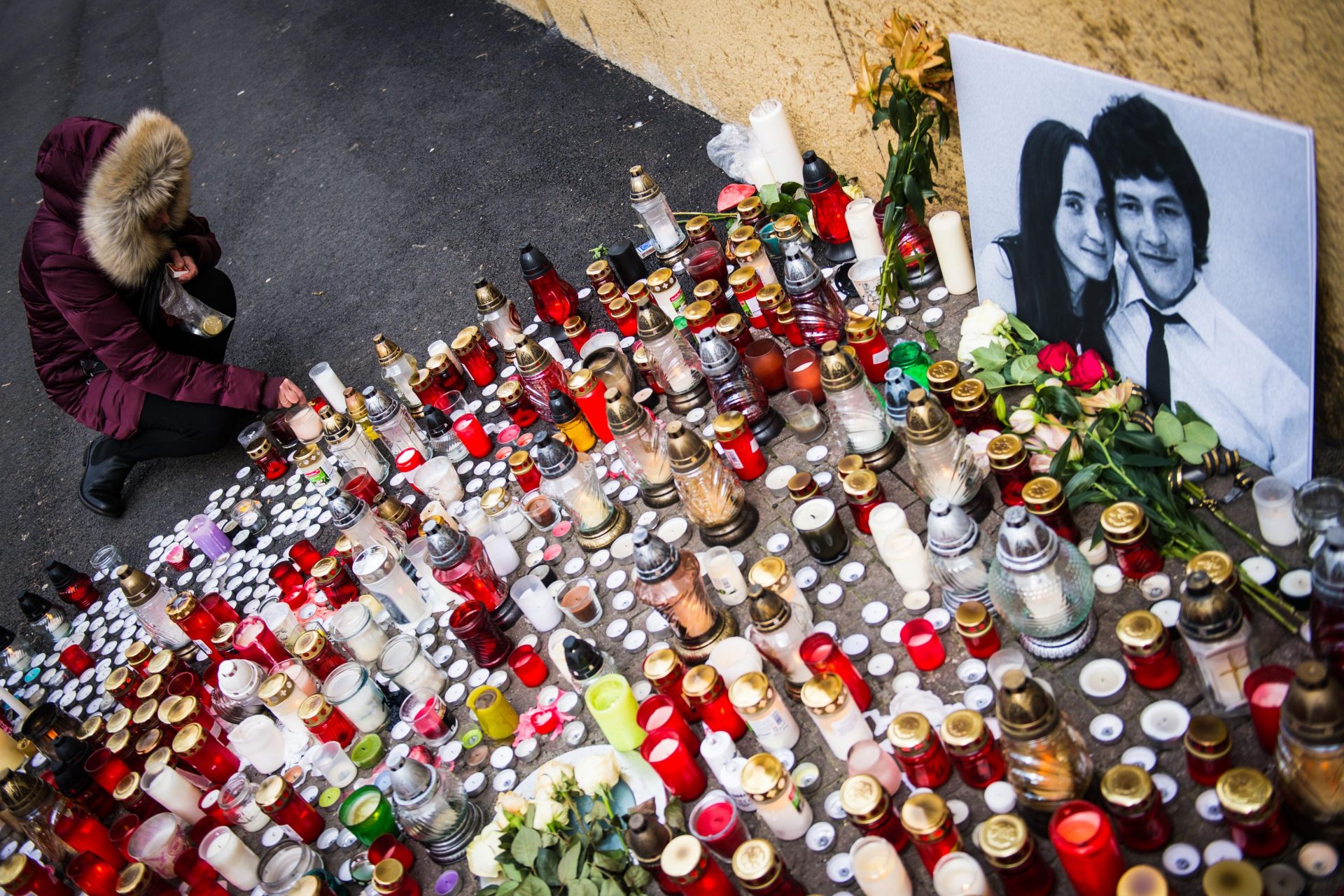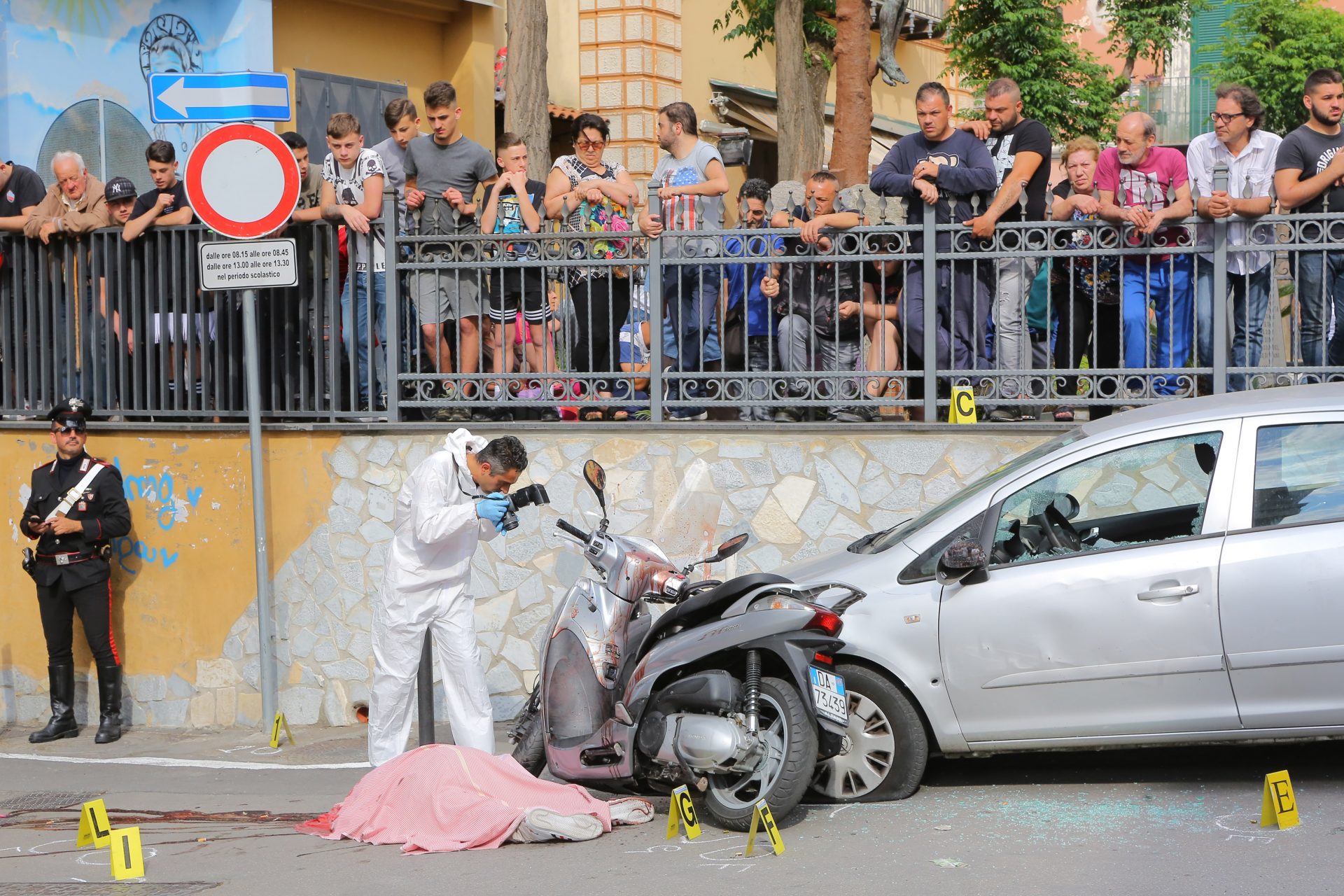The assassination of Slovakian journalist Jan Kuciak and his fiancée at their home near Bratislava two years ago exposed a web of organised crime, shady businessmen and political corruption that shook Slovakia to the core.
His posthumous articles found links between Italy’s powerful ’Ndragheta mafia group and senior politicians involving a prosaic-sounding but lucrative European Union agricultural scam.
“The Italian mafia came to Slovakia and started land grabbing for agriculture subsidies,” said Czech centre-right MEP and EU budget committee rapporteur Tomas Zdechovsky. “Organised crime has systematically been taking money from the state.
“It’s really very easy, if you have some agriculture activities, to take money from the state.”
With local bureaucracy in the young state ill-equipped to deal properly with the funds flowing in from the EU, there were few obstacles to misappropriating them. No wonder the Mafia wanted in.
It’s become clear this is a pattern followed across the continent, with chilling implications for the EU as it rolls out its £700bn Next Generation Covid recovery funds – its largest ever stimulus package.
This comes on top of its £1.51tn long-term budget.
According to a report commissioned by MEPs, up to 2% of the EU’s total budget is lost to fraud involving organised crime each year.
The report, produced by the Centre for Strategy and Evaluation Services (CSES), uncovered a whole menu of wrong-doing from subsidy fraud, including farming grants and infrastructure funds, to scams involving tobacco, alcohol and oil duties based on different levels of VAT between member countries.
“Organised crime is where most of the money goes – they’re involved in the larger parts of the fraudulent activity,” Jack Malan, leader of the CSES project, told me. VAT fraud is the biggest earner, he added, “but on the expenditure side EU subsidy fraud is pretty big.”
All the scams don’t involve mafiosi. In some cases, politicians – especially powerful ones able to scare civil servants into submission – cope very well by themselves. In May, Czech police recommended – for a second time – that billionaire former premier Andrej Babis, who lost power last month, be indicted for more than £1.5m of EU subsidy fraud linked to a farm transferred through his Agrofert conglomerate to his family members. Babis denies any wrongdoing.
It’s not always possible to link organised crime to scams, even though in some cases it is implicit. And as such activity is hidden, illicit and protected by powerful people, available figures are underestimates.
In Slovakia’s case, organised crime involvement seems clear. The European Anti-Fraud Office (OLAF) uncovered several cases of abuse of EU funds and ordered £60m to be repaid for “financial corrections” in 2020 alone because of agricultural fund misuse.
But Slovakia is not the only offender – maybe not even the worst, since its crime tally is also linked with its strong fraud detection system, according to Malan.
Zdechovsky cites Slovakia, Italy, Bulgaria and Romania among the worst culprits, but fraud exists elsewhere across the EU, from Germany and Spain to Hungary, Poland, Malta and beyond. If a country has a port or receives a lot of funding, it’s more likely that someone’s taking EU money.
Much subsidy fraud is linked to the cohesion fund, Malan explained, which usually involves large infrastructure projects and complex subcontracting arrangements. “That’s where you get criminal activity on an organised basis, with fake companies,” he added.
In Romania, a network of fraud and money laundering was exposed in the case of one £90m project involving public water construction subcontracted to a fake RomanianGerman partnership.
The former communist state, which received more than £20bn in agricultural funds from the EU between 2008 and 2018 thanks to its vast arable land area, is also targeted for agricultural subsidy fraud.
Farmers told researchers for European Greens that the complexity of accessing funding meant most successful applicants were big organisations able to use “loopholes in the law to make easy money and are not willing to invest in the future” – a claim backed by anti-corruption investigations.
These include a probe into claims of EU fund misappropriation by powerful former social democrat leader Liviu Dragnea, jailed in 2019 for corruption and subsequently accused of establishing a criminal group.
Another big offender is populist Viktor Orbán’s Hungary. In 2018, OLAF carried out more investigations into Hungarian EU funds than any other member state, and recommended it pay back 3.84% of the EU funding Budapest dispersed between 2014 and 2018.
In the EU’s poorest state, Bulgaria, between 5% and 15% of total EU spending is suspect, according to the NGO Center for the Study of Democracy –up to £1.5bn between 2014 and 2020.
Most violations were crop subsidies and the construction of “guest houses” that ended up as private homes.
A Bulgarian transparency group found that prosecutors helped mobsters seize an elevator company to benefit from EU green funding for refitting tower blocks.
According to El Pais, the Italian Mafia is setting up in Spain because of its prominence in the drug trade, cultural similarities and more lenient prison system.
Fraud here has been linked to subsidies for breeding cattle and cross-border schemes affecting humanitarian aid and regional development funds, as well as environmental subsidies – very on trend thanks to growing green funds.
During the pandemic, criminal gangs in at least 15 EU states got into healthcare fraud – including fake vaccine production.
They’re now expected to form complicated company networks to abuse Covid recovery and support schemes.
In June, the EU launched the European Public Prosecutor’s Office (EPPO) to go after crimes such as misappropriation of EU funds, crossborder VAT fraud, money laundering and organised crime, but currently just over 1% of criminal profits from EU fraud is ever confiscated.
An estimated £7tn held by organised crimes groups is hidden in offshore tax havens. And, in one calculation keeping Brussels awake at night, it’s estimated that had the fraudulent losses to EU finances been prevented or recouped, it would have been more than enough to wipe out the enormous costs associated with the pandemic.
A flood of EU funding is filling the coffers of the European Mafia
Mafia scams involving farming, tobacco, VAT and alcohol are taking billions out of EU funds. The Covid pandemic has opened the floodgates.




